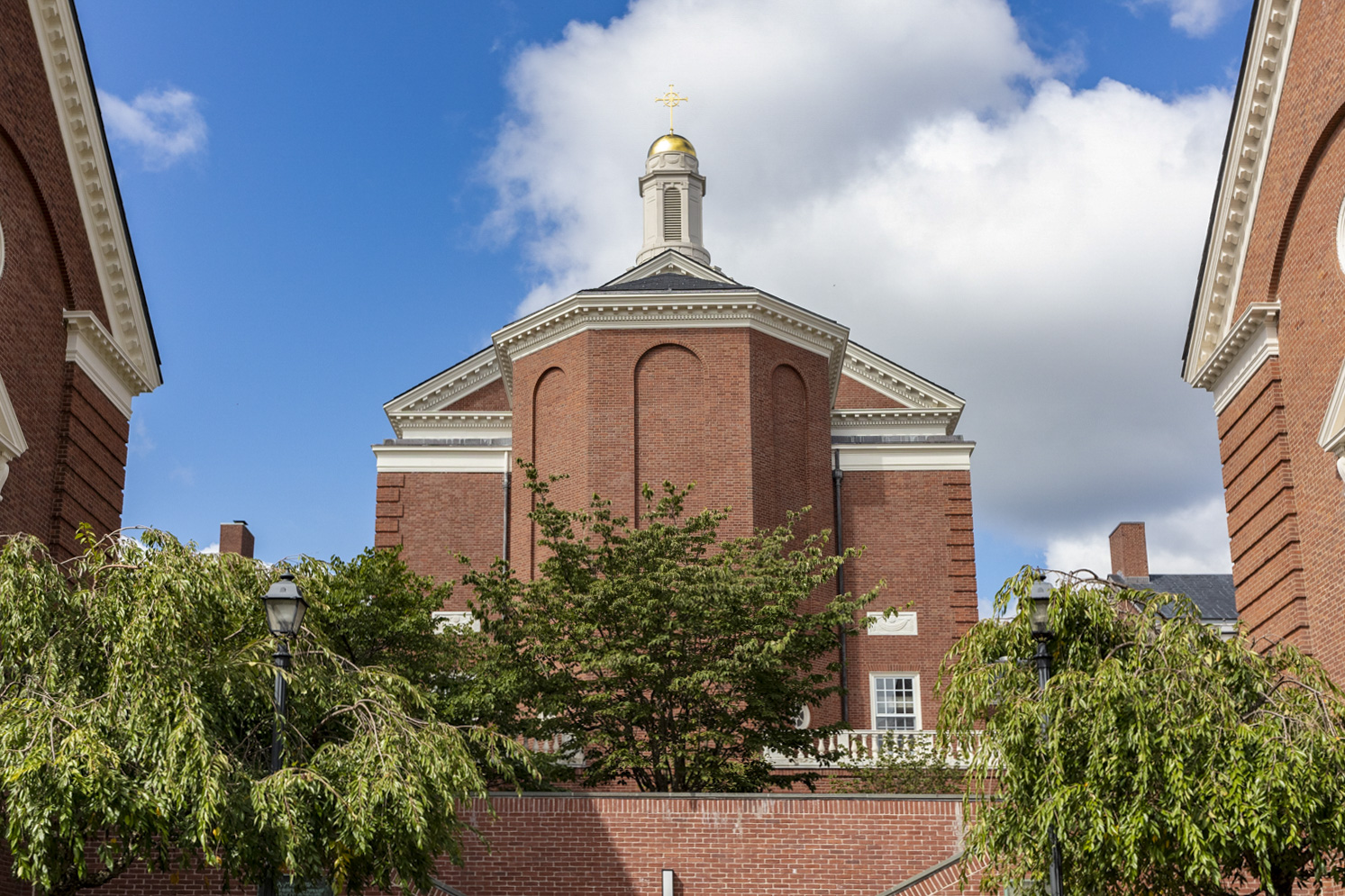
Yale Daily News
As modes of religious ministry in the United States become more varied, students at the Divinity School have the opportunity to pursue various degrees depending on their professional goals and aspirations.
The Divinity School offers two major degree programs: the Master of Divinity and the Master of Arts in Religion. The M.Div., the only professional degree offered by the Divinity School, is a three-year professional degree. By contrast, the M.A.R. is a two-year academic program that focuses more on scholarship. Associate Dean for Ministerial and Professional Leadership William Goettler said that the school’s M.A.R. program has expanded significantly over the past 20 years, representing what he called a “slow but real” change in theological education.
“There are really strong nationwide trends toward the growth in M.A.R.-type programs,” said Senior Associate Dean of Academic Affairs Jennifer Herdt. “One reason for this is simply the decline of the number of jobs available that require the M.Div. degree, which is related to the fact that there are more religious communities that seek leaders with some sort of theological education, but not necessarily a Master of Divinity.”
For Lisa Callahan DIV ’20, the M.A.R. degree is attractive because of its flexibility and breadth. She said that, while the M.Div. is “much more prescribed” with its required classes, the M.A.R. enables students to pursue alternative forms of ministry and apply their religious background to various social issues.
Goettler said that recently more students are deciding to use their M.A.R. degrees to go into ministry, rather than pursue further studies in academia. He said this could be because their denomination does not require an M.Div. for ministerial positions and they feel that an extra year of school is unnecessary, or else because students are finding new ways to apply their degree to the ministerial world.
“I’m in an evolving idea of ministry right now,” said Moriah Lee DIV ’20, who switched from an M.Div. to an M.A.R. degree after realizing she was more interested in religious scholarship. “I work for a feminist nonprofit, and we help fund women who are trying to break into the film industry, and women in third-world countries who don’t have access to education. In my mind, that is more ministry than I had ever seen in the religion I grew up with, where … there were no acts of service.”
According to Goettler, many M.A.R. students also enter the program with the intention of continuing on to doctoral work. He said that students typically cannot apply to a doctoral program in a religious field straight out of a bachelor’s program; they have to complete master’s work first.
But Lee raised some concerns about the school’s support for its M.A.R. students who are looking to go on to a doctoral program.
“There was definitely a bend toward the M.Div. group, versus the M.A.R. group, so us M.A.R.s didn’t really get a lot of support in terms of academics, and also professional and career goals,” Lee said. “A lot of us wanted to go on and get Ph.D.s, and there just wasn’t a lot of support there. But if you wanted to be in traditional ministry … you had so much support, and I would say that was one of the biggest flaws at YDS.”
Lee said she would like to see the Divinity School provide more career services for M.A.R. students, as well as greater support throughout the doctoral program application process. She added that many of her peers had to go through the doctoral program application process alone — and that if applicants had received more administrative or alumni support, there would have been a significant increase in acceptances to doctoral programs.
In response, Goettler told the News that doctoral program placement numbers are generally “very high,” especially for students who take advantage of the resources offered by the school’s Office of Vocation and Leadership.
“Every student is asked and encouraged to work with my office for their whole time at the Divinity School, to develop a portfolio of work and a group of mentors who are going to help them in their professional direction so that they’re not starting to look for a job in March of their graduation year,” Goettler said.
He underscored the fact that the M.A.R. degree is an academic, rather than a professional, program. However, he said that all students are welcome to participate in the Divinity School’s professional preparation programs. Goettler also added that the Divinity School has recently developed an office for nonprofit leadership to help students — especially those pursuing M.A.R. degrees — who are interested in going into nonprofit work.
Herdt said that the school created the Divinity Doctoral Studies Liaisons Program. The program forms a group of three to four religious studies doctoral students from various backgrounds who then coordinate programs and workshops to help students apply for doctoral programs. She added that one of the best things for students to do is speak directly with faculty members in their field of interest.
“The liaisons program is designed to fill the gap, where a student may not be quite so clear about how to define their interests, so they’re not quite sure which faculty member to reach out to,” Herdt said. “We’re trying to offer things that meet students at different points in their discernment about [doctoral programs.]”
YDS conferred 58 Masters of Divinity and 65 Masters of Arts in Religion in spring 2020, according to the Commencement program bulletin.
Julia Brown | julia.k.brown@yale.edu







